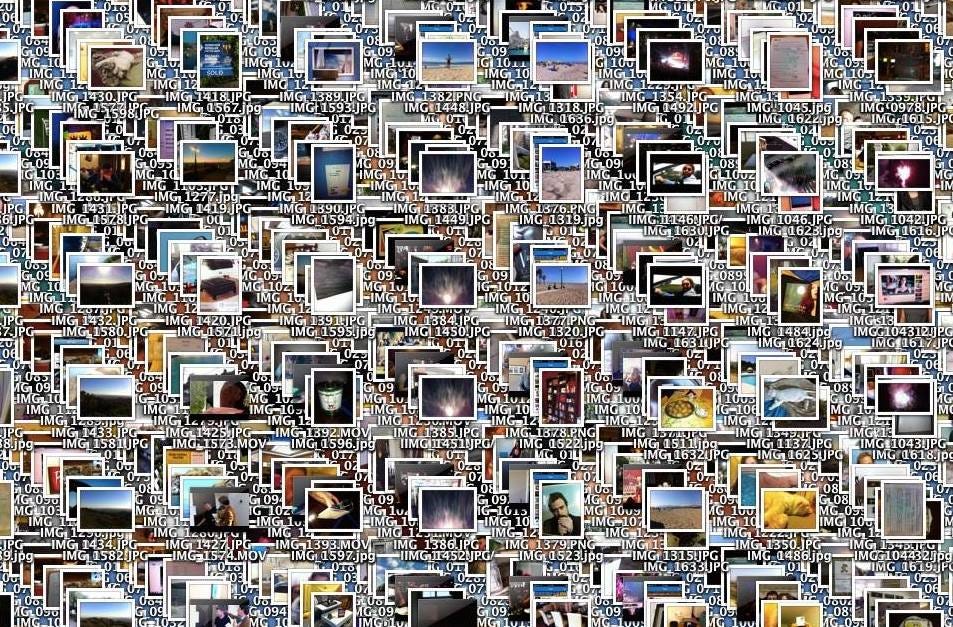Digitizing ≠ Decluttering
Digital clutter is more pernicious than physical clutter.
Recently my dear sister was lamenting the quantity of stuff that her son’s kindergarten pumps into her home. Each week, she gets a folder full of drawings and craft projects and cute little things her son made at school. On its own, each of these things is a small delight; cumulatively they are the biggest source of clutter in her house. What to do with them?
She described the radical technique of a classroom father. He scans every single piece of art that comes home from school and emails it to a gmail account he has made for each of his children—an eternal record of their kindergarten creativity.
Unfortunately, this father is falling into a classic tidying trap: digitization is not decluttering. Digital clutter is the most pernicious and ineradicable form of clutter in our already over-cluttered world.
Because digital files don’t take up any space, it may seem like they aren’t actually clutter. But this idea is dangerous for four reasons.
First of all, they do take up space, it’s just elsewhere—in some massive server station in the arctic, using an ungodly amount of electricity. Much like our garbage that ends up out of sight in a landfill, or our broken electronics that end up on the shores of Ghana, everything takes up space, it’s just often somewhere poorer.
Digital clutter is also much easier to hoard than physical objects. I myself am no holier than thou: for over a decade I have hoarded a trove of 60gb of music files that have now migrated to three separate computers, even though I listen to music almost exclusively on Spotify. Something seems important about actually possessing the complete catalog of A Tribe Called Quest—rarities and remixes included—even though I would scoff at the idea of keeping the equivalent thousands of CDs.
Digital clutter is much harder to dispose of than physical clutter. Because digital objects are so easy to lose, a network of backups and safety mechanisms have wisely been developed to protect our data. But this means that a single file can exist in many places at once, and deleting one does not delete all of them. A deleted photo will still exist in iCloud, a deleted document will still exist on an external hard drive. Working through the maze of folders on a desktop and in the cloud is infinitely harder than working through a cupboard or dresser.
I once worked up the nerve to clear out my music library, and many hours later I had succeeded in reducing its size by a third: no easy task, I had to comb through the guts of my computer to make ensure the files were actually gone. A week later my computer died, and when I restored a new one from my backup hard drive, all those music files reappeared. I’ve never had the willpower to confront them again.
Marie Kondo’s system of tidying relies on physically handling an object and feeling whether it brings you joy—woo-woo, but effective. But you can’t actually handle digital files, so they are very hard to assess. It’s no surprise then that her books avoid the topic of digital clutter—it’s much too hard to assess its value in your life.
Finally, clutter of all types is pernicious not just in the space it takes up but in its very energy. Clutter captures a tremendous amount of emotional and psychic energy. One of the most profound effects of decluttering is not clearing space, but clearing out the trapped memories and emotions. Digitizing just uploads all this energy to the cloud. Oh, the poor inheritance those kindergarteners will find as they grow into 30-somethings and are forced to deal with gmail accounts bloated with hand-turkeys and popsicle stick people, their parents’ neuroses and complexes.
So, how to deal with kindergarten art? The best would be to take each paper in hand, say “this is very nice” and promptly toss it in the bin. Perhaps you can keep a single piece at a time taped to the fridge, replacing it when something more cherished comes along. Perhaps you paste one exemplary piece per year into a baby book. But please don’t keep them all. And whatever you do, don’t digitize them.




I enjoyed this piece and agree about digital clutter - it is something I think about a lot when we are told to take a picture or keep something online. I think this impacts our mental wellbeing and as you noted it is not without environmental impacts.
Perfect timing and a great reminder as we embark on a home decluttering starting tomorrow!